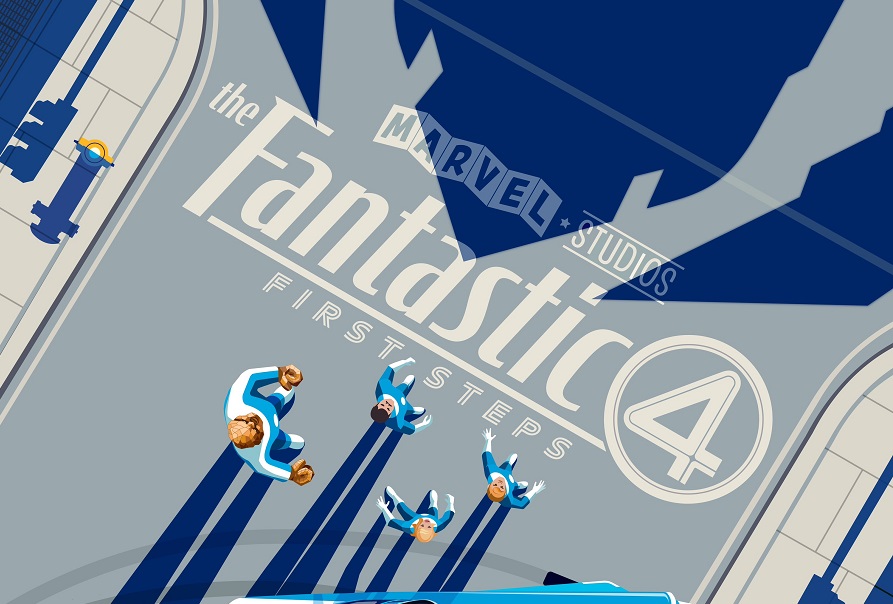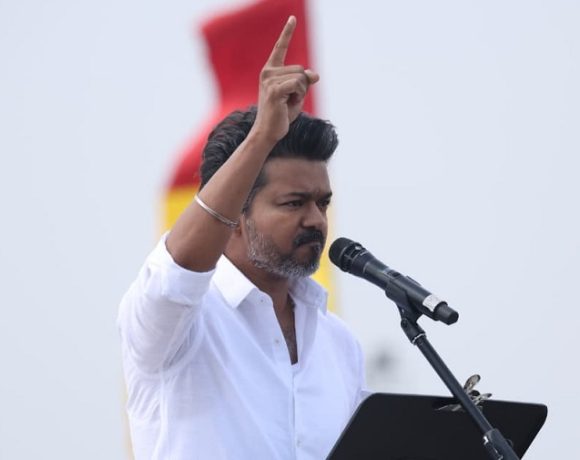
Fantastic Four: First Steps (2025) – Movie Review
Rating: ★★★★¼ (4.25/5)
I walked into Fantastic Four: First Steps with equal parts skepticism and hope. The Fantastic Four franchise hasn’t had the easiest cinematic journey—ranging from the campy 2005 version to the notoriously disjointed 2015 reboot, Marvel’s First Family always felt like they were waiting for the right storyteller. With First Steps, that wait seems finally over.
From the very first frame, the retro-futuristic aesthetic makes it clear that this is a bold departure from Marvel’s typical post-Avengers visual style. Set in a reimagined 1960s timeline—complete with analog tech, Cold War undertones, and a dreamy palette—the film embraces a vintage comic book vibe that both grounds and elevates the narrative. It’s a style decision that works not just visually, but tonally, signaling that this isn’t just another origin story. It’s a love letter to the Fantastic Four’s comic roots.
Pedro Pascal as Reed Richards is the film’s emotional anchor. His portrayal is subdued yet brilliant, radiating the quiet confidence of a man cursed with intellect and burdened with leadership. Vanessa Kirby as Sue Storm delivers one of the most emotionally resonant performances I’ve seen in the MCU in years. Her chemistry with Pascal is believable, mature, and refreshingly subtle. Joseph Quinn’s Johnny Storm is cocky, impulsive, but deeply layered—a far cry from the one-note portrayals of the past. And Ebon Moss-Bachrach as Ben Grimm brings heart, humor, and pathos in a role that could’ve easily been lost in CGI and gravelly voice acting.
What fans seem to love—and I completely agree—is how the movie skips the long-winded origin tropes. The team already exists. The world already fears and misunderstands them. And instead of spending 90 minutes explaining how they got here, the film dives into how they function. Or in some cases, how they struggle to.
The villain, though—Victor Von Doom—feels more like a teaser than a threat. He looms large, and his screen time is impactful, but I found myself wanting more. And while the character’s minimal use might be intentional (possibly to preserve him for future arcs), it’s the one area where the movie feels narratively restrained. Many users online echoed this: the film nails its tone, characters, and pacing, but the central conflict lacks the emotional or ideological punch we’ve come to expect from top-tier superhero flicks.
The score by Michael Giacchino deserves its own applause. It ties the visual and emotional layers together beautifully, further enhancing the vintage comic vibe while lending grandeur to scenes that otherwise might have felt smaller.
What stood out most, however, is how human the film feels. This is Marvel’s most grounded film since Iron Man (2008)—not in scale, but in spirit. It’s about family, about dysfunction, about trying to be better even when your powers make it harder. And in that sense, Fantastic Four: First Steps becomes something more than a superhero movie—it becomes a fable of coexistence in a world quick to judge what it doesn’t understand.
By the end, I wasn’t just impressed. I was relieved. Marvel didn’t just reboot a franchise. They resurrected it with purpose. With user reviews praising everything from the set design to the cast chemistry, and critics noting its tonal freshness and warmth, this film hits a rare sweet spot: beloved by audiences and respected by critics.
In a post-pandemic cinematic world yearning for both escapism and emotion, First Steps delivers. It might not break the MCU mold, but it reminds us why we loved it in the first place.

















